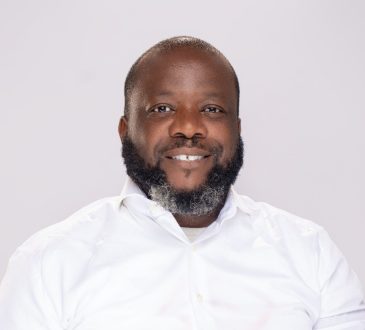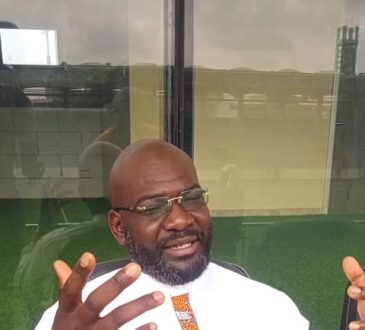

And why integrated, trusted platforms are essential for Nigeria’s financial future.
By Olufemi Yoloye, CEO, Coronation Wealth
I vividly remember my first investment experience. It was 2008, and I was concluding my SIWES program in one of the leading Oil & Gas companies. Armed with three months’ salary and a burning desire to grow my wealth, I walked into the imposing headquarters of a leading stockbroking firm in Abuja. The marble floors, suited executives, and hushed tones immediately made me feel like I was intruding on a private club.
After waiting for nearly two hours, I was finally ushered into a wood-panelled office where a broker, barely looking up from his newspaper, asked for my minimum investment of ₦500,000 – equivalent to about $3,700 at the time. When I explained I only had ₦19,000, he dismissed me with a wave of his hand, suggesting I “come back when I was serious about investing.” That day, I learned that wealth creation wasn’t just about having money; it was about having access to the right networks, information, and platforms.
Two decades later, the investment landscape has undergone a seismic shift. The digital revolution that transformed how we communicate, shop, and work has finally reached Nigeria’s capital markets. Today, a fresh graduate in Ibadan can open an investment account from her phone, buy shares of blue-chip companies with as little as ₦100, and access the same real-time market data that was once the exclusive preserve of institutional investors.
The Digital Advantage: Real-Time Democracy
Digital investment platforms have fundamentally democratised three critical aspects of wealth creation: access, information, and cost. In the past, investing often meant physically visiting a stockbroking office during business hours. Today, digital platforms operate round the clock, offering unprecedented flexibility. Where investors once waited for next-day newspaper updates or quarterly statements, real-time data now delivers market insights instantly, placing decision-making power directly in the hands of everyday users.
Consider the transformation in information access. In the pre-digital era, research reports were expensive, exclusive documents shared only among high-net-worth clients. Today, algorithmic analysis, automated portfolio recommendations, and comprehensive market research are standard features on most investment apps. The playing field has levelled in ways that would have been unimaginable just a decade ago.
The convenience factor cannot be overstated. Digital platforms have eliminated the intimidation factor that kept many potential investors away from capital markets. Users can now learn about investing through gamified experiences, practice with virtual portfolios, and gradually build confidence before committing real money. This educational approach addresses one of Nigeria’s most persistent challenges: the knowledge gap that historically drove people toward riskier, informal investment schemes.
Cost efficiency represents another revolutionary change. Traditional wealth management services typically required minimum investments of millions of naira and charged hefty fees. Digital platforms have shattered these barriers, allowing fractional ownership of expensive assets and charging minimal fees through automated processes. Commercial paper, government bonds, and equity funds that were once accessible only to institutional investors are now within reach of the average Nigerian.
The Friction Points: Where We Still Fall Short
Despite these advances, significant challenges continue to hinder widespread adoption of digital investment tools in Nigeria. The statistics are sobering: despite a population exceeding 200 million, fewer than 1% of Nigerians participate in collective investment schemes like mutual funds. This represents not just a missed opportunity, but a fundamental failure to create an inclusive financial ecosystem.
The first major friction point is fragmentation. The current landscape requires users to juggle multiple applications for different investment needs. Someone might use one app for stock trading, another for mutual funds, a third for fixed deposits, and yet another for insurance. This scattered approach creates confusion, increases transaction costs, and ultimately discourages participation. The cognitive load of managing multiple platforms, each with its own interface and requirements, can be overwhelming for new investors.
Payment infrastructure remains another significant barrier. While mobile apps have revolutionized basic financial services, the integration between payment systems and investment platforms often lacks seamlessness. Users frequently encounter failed transactions, delayed settlements, and complex reconciliation processes that erode confidence in digital investing.
Low financial literacy continues to plague the sector. Consider this: the total size of Nigeria’s public mutual fund industry is just under ₦6 trillion, with fewer than 900,000 unit holders – in a country of over 200 million people. In contrast, over ₦1.3 trillion was recently lost to a single high-profile Ponzi scheme. This stark contrast highlights the scale of financial literacy and trust challenges we still face. It’s not just a trust gap – it’s a trillion-naira opportunity cost. While digital platforms have made information more accessible, they haven’t necessarily made it more comprehensible. Many apps overwhelm users with technical jargon, complex charts, and investment options without adequate explanation. The result is that potential investors either avoid the platforms entirely or make uninformed decisions that lead to losses and further discourage participation.
Trust and security concerns compound these challenges. High-profile cases of fintech failures, unauthorized transactions, and data breaches have made many Nigerians wary of digital financial services. The nascent regulatory frameworks for digital investment platforms create additional uncertainty. Users want assurance that their funds are protected, their data is secure, and they have recourse if something goes wrong.
Cultural factors also play a role. Many Nigerians still prefer the human interaction and perceived security of traditional banking relationships. The concept of “digital-first” investing conflicts with established patterns of financial behaviour, particularly among older demographics who control significant portions of investible assets.
The Access More Solution: Where Trust Meets Seamless Integration
This is where Access More represents a paradigm shift in how Nigerians can approach wealth creation. Rather than asking users to manage multiple platforms and providers, Access More offers a unified ecosystem for wealth creation. Its greatest strength? Deep integration within Access Bank’s secure and regulated infrastructure.
In financial services, trust isn’t a nice-to-have benefit. It’s the bedrock of all innovation. When users know their investments are backed by a regulated, established financial institution with decades of operational history, they can focus on building wealth instead of worrying about platform failures.
From a single interface, users can access a wide range of investment options – from stocks and bonds to mutual funds, fixed deposits, treasury bills, and even insurance products. This eliminates the complexity of managing multiple relationships and provides a cohesive view of one’s entire financial portfolio. The platform’s unified approach means users can easily move funds between different investment vehicles as their needs and market conditions change.
The payment integration is seamless because it’s built on Access Bank’s robust banking infrastructure. Users can fund their investments directly from their bank accounts, and receive real-time updates on their portfolio performance. The friction that typically accompanies cross-platform transactions is eliminated, making it easier for users to maintain consistent investment habits.
The security framework is enterprise-grade, leveraging Access Bank’s existing cybersecurity infrastructure and regulatory compliance systems. Users benefit from the same security standards that protect institutional banking relationships, including multi-factor authentication, encryption, and fraud detection and prevention. This addresses one of the primary concerns that prevent the adoption of standalone fintech solutions.
Perhaps most importantly, while the platform is designed for digital-first interaction, users can access relationship managers, investment advisors, and customer service representatives when they need personalized assistance. This hybrid approach combines the efficiency of digital tools with the reassurance of human expertise.
Building Tomorrow’s Wealth Creators
The democratisation of wealth creation through digital tools represents more than a technological advancement; it’s a fundamental shift toward financial inclusion. Nigeria’s demographic dividend – with 62% of the population under 24 years old – creates an unprecedented opportunity to build a generation of investors who view capital market participation as normal and accessible.
Digital platforms like Access More are not just making investing easier; they’re reshaping the very concept of who can be an investor. The young entrepreneur in Kano, the teacher in Enugu, and the civil servant in Abuja now have access to the same investment opportunities and information that were once available only to the wealthy elite in Lagos and Abuja.
The key to unlocking this potential lies in creating platforms that are not just digital, but comprehensive, trusted, and integrated. The future of wealth creation in Nigeria will be built by those who can provide holistic financial solutions within secure, regulated environments. Access More represents this future – where technology serves not just to digitize existing processes, but to fundamentally expand access to wealth-building opportunities.
As we move forward, the question isn’t whether digital tools will democratise wealth creation, but how quickly we can scale these solutions to reach Nigeria’s vast population of potential investors. The infrastructure is in place, the technology is proven, and the opportunity is immense. What remains is the execution – and the commitment to building platforms that truly serve the needs of everyday Nigerians.
The boy who was turned away from that stockbroking office in 2003 would find a very different landscape today. More importantly, his children will inherit a financial system where wealth creation is accessible, transparent, and available to all. That transformation is not just good for individual investors – it’s essential for Nigeria’s economic future.
Olufemi Yoloye is the CEO of Coronation Wealth and a champion of financial inclusion in Nigeria’s capital markets.
—END—




